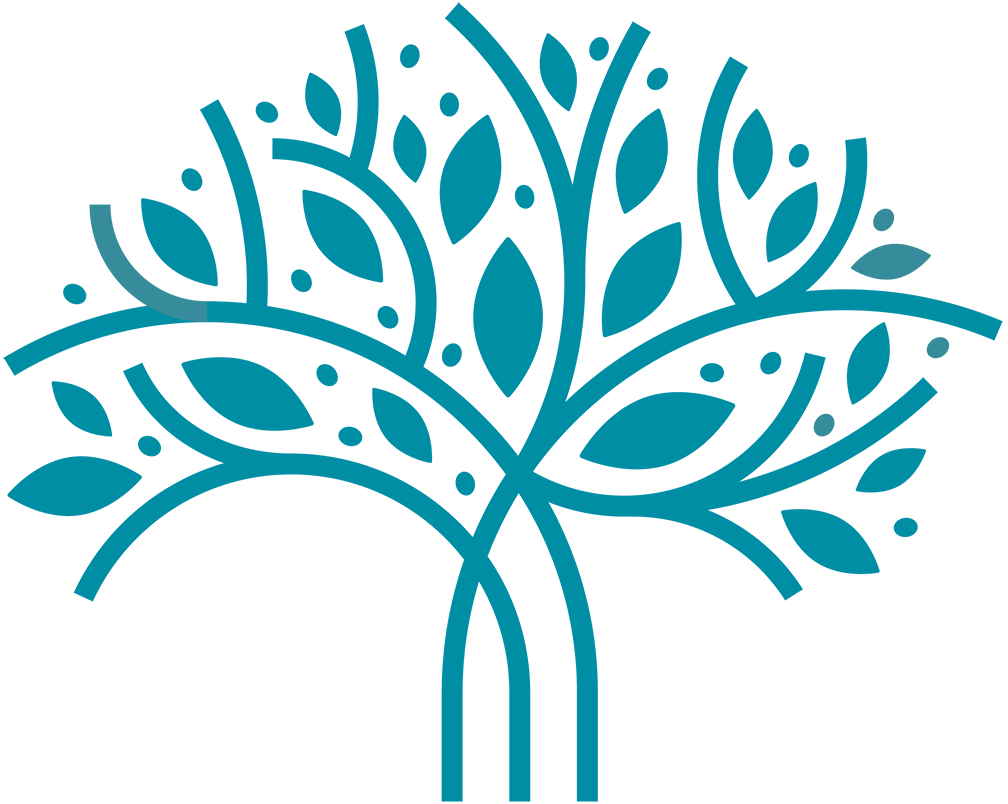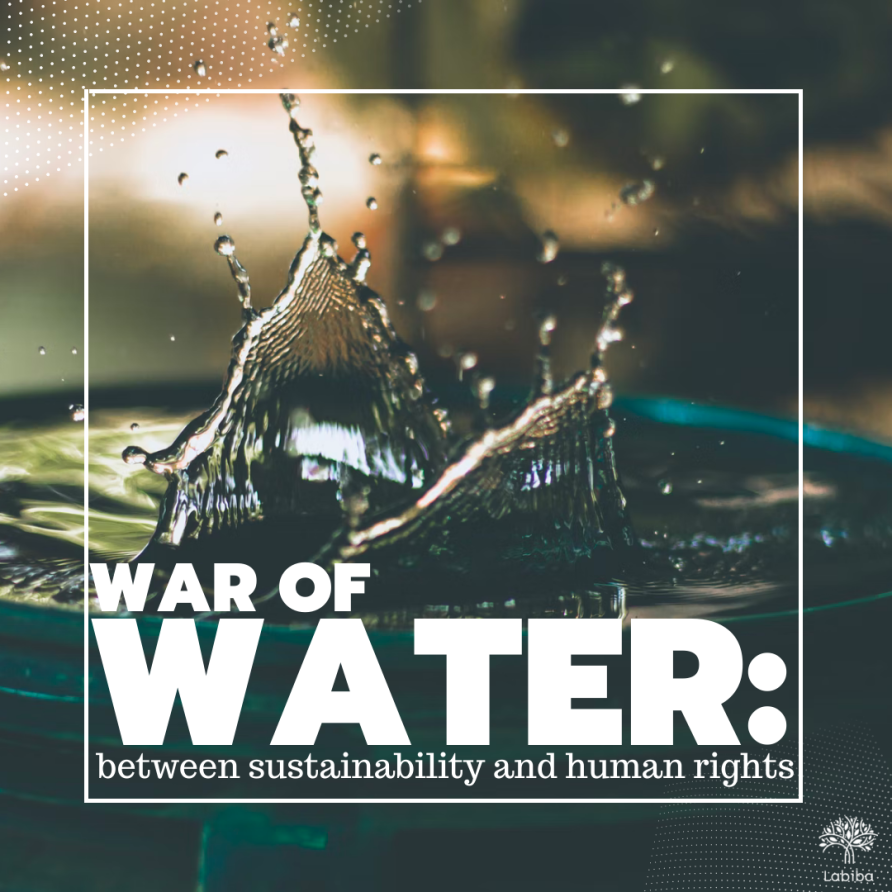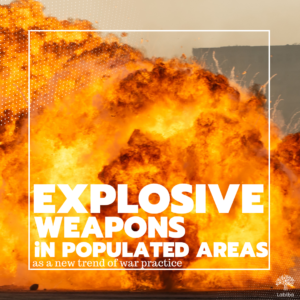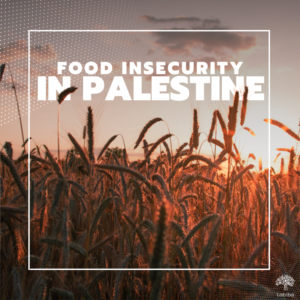Life for Palestinian farmers is not easy at all, complicated not only by the drought and aridity that afflict large areas of the region but also by the direct effects of the conflict with Israel which affects the access and control of a very precious commodity: water. The struggle for water, named Water Grabbing, begun when the State of Israel was born and precipitated in 1967 with the occupation of the West Bank and the Golan Heights by the new state that took de facto control of Palestinian water supply. After years of conflict, the two factions met during the Oslo Accords of 1993 and 1995, when they also addressed the delicate issue of water resources. Since then the West Bank has been divided into 3 zones: zone A under the control of Palestinian authorities through the Palestinian Water Authority, zone B jointly administered by Palestinian and Israeli authorities through the Joint Water Committee, and the zone C under Israeli hegemony with the Israeli Regional Civil Authority (ICA).
Given the demographic superiority of the Israeli people over the Palestinian people in the area, it was established that the water supply should be divided 80% in favor of the former and 20% in favor of the latter. The percentages to date are even lower to the detriment of Palestinian communities, amounting to about 14% of water resources, which equals to 70 liters per day per person, against 280 liters for Israelis and 350 liters for settlers, well below the minimum threshold of 100 liters of water per day per capita established by the WHO (World Health Organization) to guarantee a healthy life. The most troubled area is Zone C, which comprises about 60% of the West Bank, where only 16 out of 180 communities have direct access to the Israeli-controlled water network and where the supplies for Palestinian communities are reduced by about 40% in periods of severe drought, and then resold to the communities that do not have access to the water network at a price 4 times higher than the average. Naturally, it is mainly families, Palestinian refugees, and the productive segments of Palestinian society, including farmers, who pay the price. Among the latter, the Bedouin communities that survive through agriculture and pastoralism are experiencing a real tragedy. With massive water shortages and the inability to move with livestock due to restrictions imposed by the Israeli military, they are struggling to survive as the cost of “buying” water from Israeli water networks amounts to about 50% of their expanses. Since they’re not able to use the wells, they are often forced to use their tractors to transport water into the barrels for many kilometers and this weighs heavily on their economy, not to mention the possible repercussions by the Israeli army, namely the confiscation of water and means of transport. Recent studies confirm that the water shortage in the West Bank area severely hinders the economic growth and progress that a pioneering approach to agriculture would bring. An even more dramatic situation is found in the Palestinian refugee camps of the UN, where water scarcity is on the agenda and threatens the minimum health conditions of thousands of people who are once again denied the right to a dignified life. The inability to access water networks and the malfunctioning and deterioration of those existing, in fact, prevents refugees from surviving, under the helpless gaze of UNRWA, the UN agency that manages the fields, which is not allowed to build new wells but only to carry out maintenance activities. The construction of new wells, often financed by international cooperation, is blocked by the bureaucracy and the competent authorities of both sides. The Israeli ICA blocks water interventions in the West Bank supported by donor states by preventing the construction of wells and a water network capable of meeting the needs of the entire population. The Palestinian Water Authority, for its part, is failing to intervene to improve the water situation, apparently with the intention of pleading the Palestinian cause against the Israeli settlers, effectively suspending the activities of the Joint Water Committee and blocking important projects. Very often the Israeli military forces damage Palestinian water structures during their interventions and exercises to “ensure security”, and it has been found by UNRWA that the quality of the water is gradually deteriorating, it is suspected, due to illegal spills in the rivers.
The situation in the Gaza Strip appears to be unsustainable. It is estimated that only 10% of the population has access to drinking water due to the continuous damage and destruction of water networks during the bombing. Adding to this tragedy is the impossibility of building and repairing the pipelines due to the Israeli embargo on the import of iron and cement into the region for security reasons. The heavy pollution due to oil extraction in the area and the infiltration of sea water into water systems also make the water undrinkable. Since the Oslo Accords of 1995, which should have lasted only 5 years, a temporary solution to buffer a further spark to fuel the conflict, the water issue has no longer been the subject of discussion between the factions even during the long negotiations of the second peace accords, Intifada and the 2020 Century Agreement, supported by the Trump presidency, with which Netanyahu wanted to formalize the Israeli presence in the West Bank in violation of international law.
The survival of thousands of people is linked to the struggle for an essential asset sanctioned at an international level by the Universal Declaration of Human Rights, reaffirmed in the Resolution of the United Nations Assembly 64/292 of 28 July 2010 which recognized the “right to safe and clean drinking water and sanitation as a human right that is essential for the full enjoyment of life and all human rights “, and placed at number 6 among the 17 objectives of the United Nations 2030 Agenda for sustainable development.
We all have the right to water, including the Palestinian people.
Maria Pisano



